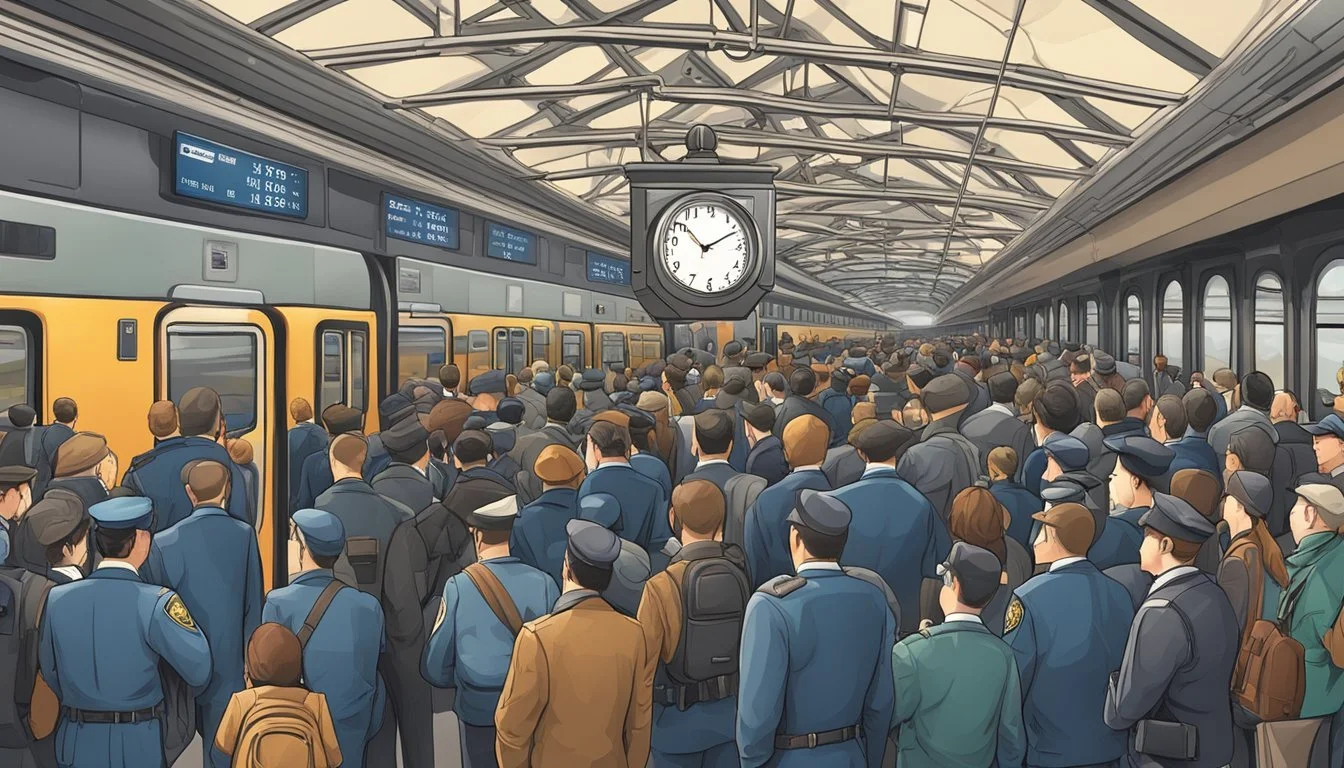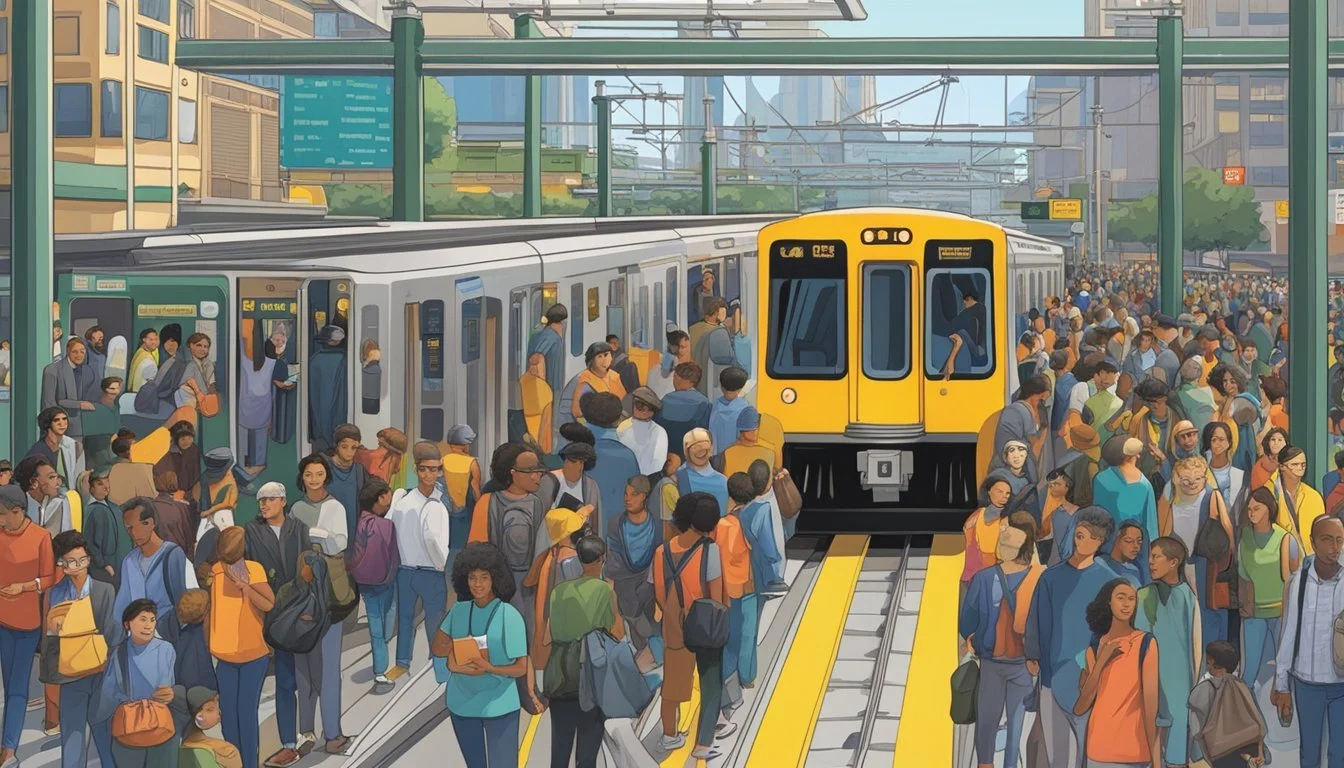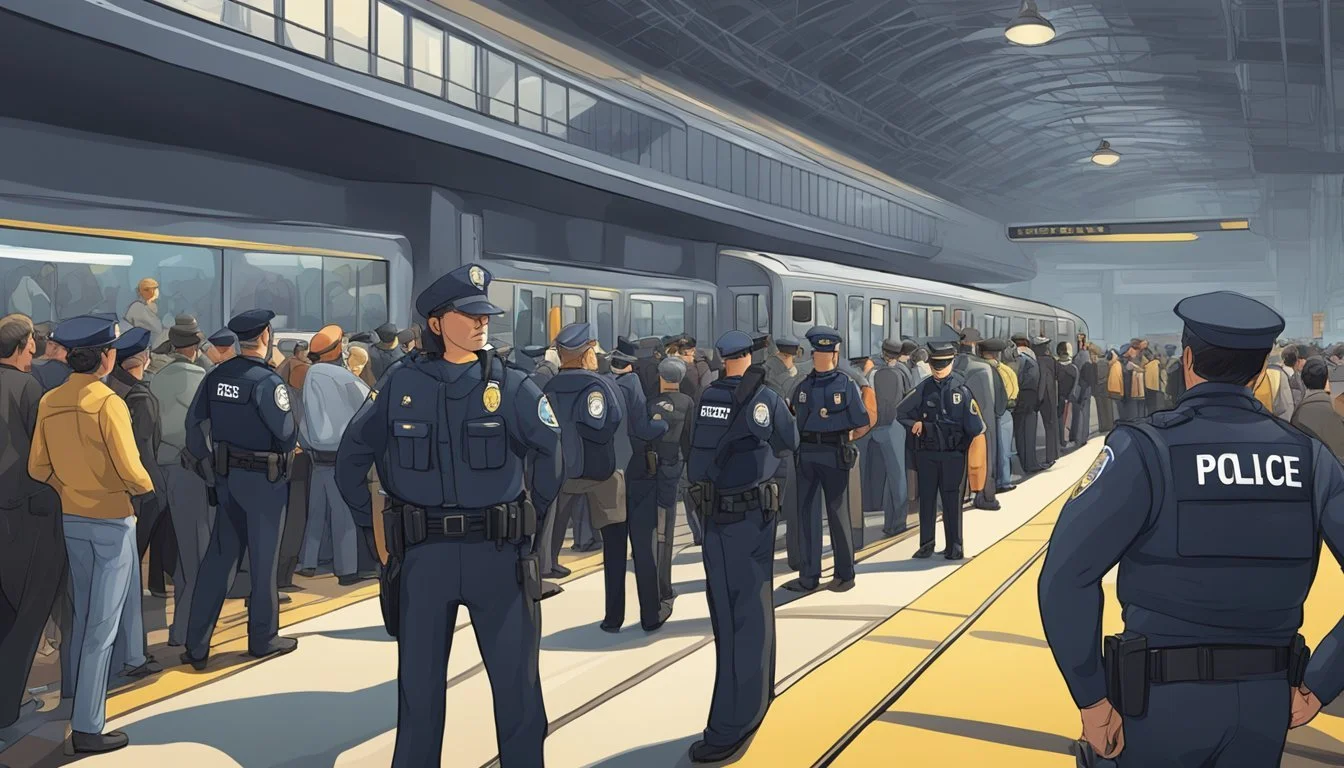Oscar Grant's Last Day: The True Events Behind 'Fruitvale Station'
Unraveling the Tragedy
Oscar Grant's last day on Earth became the subject of the powerful film "Fruitvale Station." The movie, directed by Ryan Coogler, portrays the events leading up to Grant's tragic death on January 1, 2009, at the Fruitvale BART station in Oakland, California.
"Fruitvale Station" closely follows the true events of Oscar Grant's final hours, depicting his interactions with family, friends, and strangers before his fatal encounter with BART police. The film stars Michael B. Jordan as Grant, capturing the essence of a 22-year-old man trying to turn his life around.
While the movie takes some creative liberties, it remains grounded in reality. Grant's routine activities, his relationships, and the circumstances surrounding his death are largely based on factual accounts. The film's emotional impact stems from its authentic portrayal of Grant as a complex individual, rather than just a headline.
Background on Oscar Grant
Oscar Grant III was a 22-year-old African American man from Hayward, California. His life and tragic death in 2009 became the subject of the film "Fruitvale Station."
Personal Life and Family
Oscar Grant was born on February 27, 1986, to Wanda Johnson and Oscar Grant Jr. He grew up in the Bay Area, primarily in Hayward. Grant was the father of a young daughter, Tatiana, born in 2004 when he was 18 years old.
He maintained a close relationship with his girlfriend, Sophina Mesa, who was also Tatiana's mother. Grant was known for his love of family and his dedication to his daughter.
Family played a central role in Grant's life. He had a strong bond with his mother and sought to be a positive influence in his daughter's life.
Education and Career Aspirations
Grant attended Mount Eden High School in Hayward but did not graduate. He later earned his GED, demonstrating his commitment to education despite earlier challenges.
After obtaining his GED, Grant expressed interest in pursuing a career as a barber. He considered enrolling in barber school to develop his skills and build a stable career.
Grant worked various jobs to support his family, including positions at grocery stores and fast food restaurants. He aspired to create a better life for himself and his daughter.
His career goals reflected a desire for stability and self-improvement. Grant's efforts to further his education and pursue vocational training showed his determination to overcome obstacles and create opportunities for himself and his family.
The Setting: Oakland's BART System
The Bay Area Rapid Transit (BART) system plays a crucial role in connecting Oakland to the wider San Francisco Bay Area. It serves as a vital transportation link for millions of residents and visitors.
BART Police Structure
BART maintains its own police force to ensure passenger safety and security. The BART Police Department operates independently from local city police departments. Officers patrol trains, stations, and BART property.
BART police undergo specialized training to handle transit-related issues. They have jurisdiction in all BART facilities across multiple counties. The department is organized into patrol, investigations, and support services divisions.
BART's Role in the Bay Area
BART connects Oakland to San Francisco, Berkeley, and other Bay Area cities. The system includes over 120 miles of track and 50 stations. It serves an average of over 400,000 riders on weekdays.
For Oakland residents, BART provides essential access to jobs, education, and cultural activities throughout the region. The Fruitvale station, where Oscar Grant's shooting occurred, is a key transit hub in East Oakland.
BART trains run frequently during peak hours and operate until midnight. The system also connects to other regional transit options, including buses and ferries. This integration makes BART central to Bay Area transportation.
Chronology of Events on December 31, 2008
Oscar Grant's final day unfolded across several key moments, culminating in a tragic encounter at Fruitvale Station. The events spanned from morning activities to a fatal shooting shortly after midnight.
Prior to the Incident
Oscar Grant began December 31, 2008, by taking his girlfriend to work. He later spent time with his daughter and mother, discussing plans for New Year's Eve celebrations.
In the evening, Grant and his friends decided to take BART to San Francisco for the festivities. They boarded the train, joining other revelers heading into the city.
As the night progressed, Grant and his group enjoyed the New Year's Eve atmosphere in San Francisco. They later boarded a BART train back to the East Bay.
The BART Shooting
Around 2:00 AM on January 1, 2009, BART police responded to reports of a fight on a train arriving at Fruitvale Station. Officers detained Grant and several others on the platform.
Witnesses began recording the incident on cell phones. Grant was face-down on the platform when Officer Johannes Mehserle drew his weapon.
Mehserle fired a single shot, striking Grant in the back. The officer later claimed he mistook his gun for his Taser.
Aftermath and Immediate Response
Bystanders reacted with shock and anger as Grant lay wounded on the platform. BART police struggled to maintain control of the chaotic scene.
Emergency services arrived to transport Grant to Highland Hospital. Despite medical efforts, he was pronounced dead later that morning.
News of the shooting spread rapidly through social media and local news outlets. Cell phone videos of the incident began circulating online, sparking public outrage.
BART officials issued initial statements, promising a thorough investigation. Community leaders called for transparency and justice as protests began to form.
Public and Legal Repercussions
Oscar Grant's death sparked widespread outrage and had significant legal consequences. The incident ignited protests, led to a high-profile trial, and deeply impacted the Grant family and Oakland community.
The Mehserle Trial
Johannes Mehserle, the BART officer who shot Grant, faced charges of murder. The trial was moved to Los Angeles due to concerns about impartiality in Alameda County. Mehserle claimed he intended to use his Taser, not his gun.
The jury found Mehserle guilty of involuntary manslaughter but acquitted him of second-degree murder and voluntary manslaughter. He was sentenced to two years in prison but released after 11 months due to credits for time served and good behavior.
Many viewed the verdict and sentence as too lenient, further fueling public frustration.
Protests and Public Outcry
Grant's death triggered immediate and sustained protests in Oakland. Demonstrators demanded justice and highlighted issues of police brutality and racial profiling.
Some protests turned violent, with instances of property damage and clashes with police. These events drew national media attention and comparisons to other high-profile cases of police violence against Black individuals, such as Rodney King.
The case became a rallying point for the Black Lives Matter movement, which gained momentum in subsequent years.
Impact on the Grant Family and Community
Grant's family filed a wrongful death lawsuit against BART, resulting in a $2.8 million settlement for his daughter and $1.5 million for his mother.
The incident left deep scars on Oakland's community, particularly among African Americans. It heightened distrust between residents and law enforcement.
BART implemented reforms, including improved officer training and civilian oversight. The Fruitvale BART station became a site of remembrance, with murals and memorials honoring Grant's life.
Grant's story inspired the film "Fruitvale Station," which raised awareness about his case and broader issues of racial injustice in policing.
Media Representation and Impact
The film "Fruitvale Station" brought Oscar Grant's story to a wider audience, sparking discussions about police brutality and racial injustice. It played a significant role in shaping public perception and contributed to broader conversations about social justice in America.
Creation of 'Fruitvale Station'
Ryan Coogler, a young filmmaker from Oakland, directed "Fruitvale Station" as his debut feature film. The movie starred Michael B. Jordan as Oscar Grant and Octavia Spencer as his mother. Coogler meticulously researched Grant's life, interviewing his family and friends to create an authentic portrayal.
The film premiered at the 2013 Sundance Film Festival, where it won the Grand Jury Prize and Audience Award. This recognition catapulted the movie into the national spotlight, drawing attention to Grant's story and the issues it represented.
Public Perception and Critical Reception
"Fruitvale Station" received widespread critical acclaim for its honest and humanizing portrayal of Oscar Grant. Many reviewers praised Michael B. Jordan's performance and Coogler's direction. The film's intimate approach allowed viewers to connect with Grant as a person, not just a headline.
The movie's release coincided with growing awareness of police brutality cases nationwide. It became a touchstone for discussions about racial profiling and law enforcement accountability. Social media platforms amplified these conversations, helping the film reach a broader audience.
Role of Media in Social Justice
"Fruitvale Station" demonstrated the power of film to influence public discourse on social issues. It bridged the gap between news reporting and personal storytelling, offering a more nuanced perspective on a complex issue.
The film's success inspired other filmmakers to tackle similar topics, contributing to a wave of socially conscious cinema. It also highlighted the importance of diverse voices in media, showing how personal experiences can shape storytelling.
Journalists and documentarians began to focus more intently on cases similar to Grant's, leading to increased coverage of police-involved shootings. This shift in media attention played a crucial role in the formation and growth of movements like Black Lives Matter.
The Legacy of Oscar Grant
Oscar Grant's tragic death sparked widespread activism and left an indelible mark on American culture. His story continues to resonate, influencing art, media, and social justice movements.
Cultural and Societal Reflections
The film "Fruitvale Station" brought Oscar Grant's story to a wider audience. Directed by Ryan Coogler, it starred Michael B. Jordan as Grant and was produced by Forest Whitaker. The movie's success helped launch Coogler's career, leading to his work on "Black Panther" and "Creed."
Grant's case became a rallying point for discussions about police brutality and racial profiling in America. It predated and influenced later movements addressing similar issues, such as the protests following the shooting of Trayvon Martin by George Zimmerman.
Continued Activism and Awareness
Grant's family established the Oscar Grant Foundation to promote social justice and community empowerment. The foundation offers scholarships and conducts youth programs to foster positive change.
Annual vigils at Fruitvale Station keep Grant's memory alive and serve as a platform for ongoing conversations about police reform. His case has been studied in criminal justice and sociology courses at universities like USC.
Grant's story continues to inspire artists, activists, and policymakers to address systemic issues in law enforcement and racial inequality. It remains a significant touchstone in discussions about police violence and accountability in the United States.




